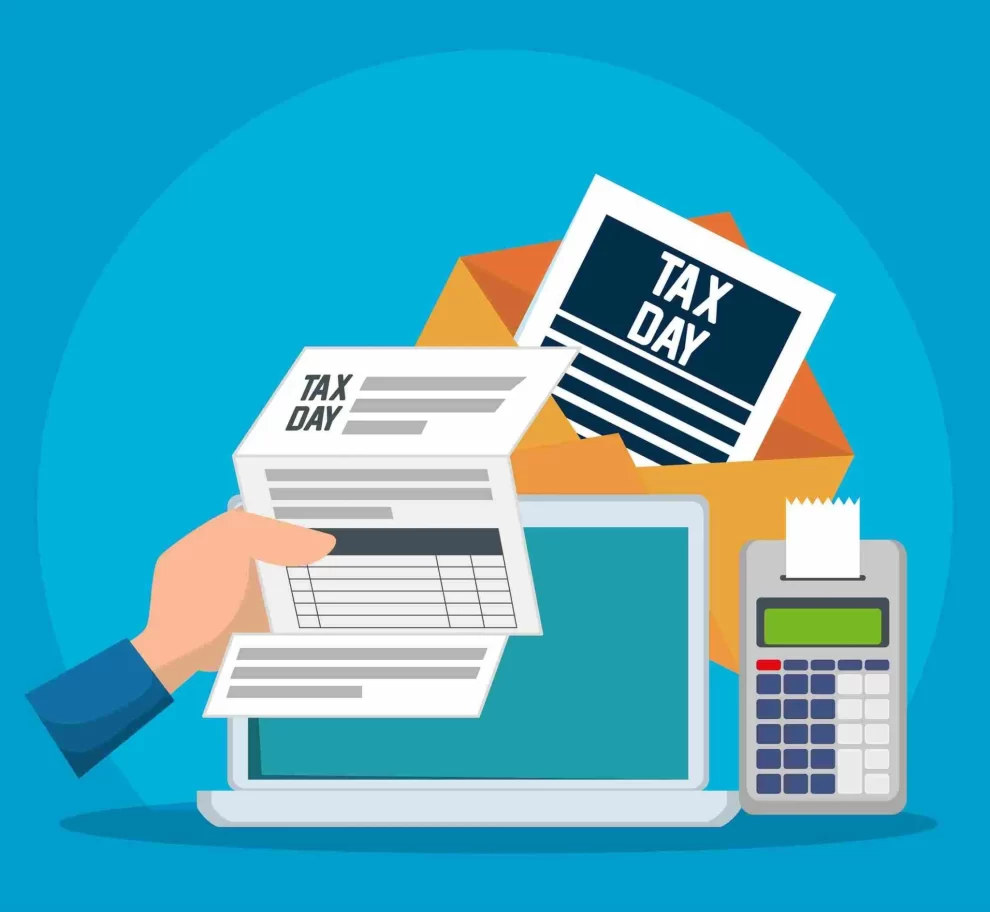Did you know that you could be paying more council tax than necessary? Many UK residents aren’t aware of the exemptions and discounts they may qualify for, potentially missing out on significant savings. This comprehensive guide aims to help uncover these opportunities, ensuring you’re paying your council tax bill. We’ll guide you through identifying eligibility for exemptions and discounts, how to apply for them, and tips to ensure you’re only paying what you owe.
What Are Council Tax Exemptions?
Council tax exemptions provide complete relief from paying council tax for specific groups or situations. Unlike discounts, which reduce the amount you owe, exemptions mean you don’t have to pay council tax. Understanding these exemptions can help determine if you qualify for complete relief, significantly reducing your annual expenses.
Council tax exemptions are designed to offer financial relief to those in need and ensure that council tax payments are fair and equitable. These exemptions recognise that specific individuals or households may have unique needs or financial constraints that justify a complete waiver of council tax responsibilities.
Examples of Common Exemptions
Students
Full-time students are generally exempt from paying council tax. If all occupants of a property are full-time students, the entire bill may be waived. This exemption acknowledges that students typically have limited income and may not be the primary contributors to household expenses.
- Full-Time Status: To qualify, students must be enrolled in a recognised full-time course of study at a university, college, or other approved institution.
- Confirmation: Students can request an exemption by providing proof of their student status to their local council, such as a student ID or enrolment letter.
- Shared Accommodation: If only some occupants are students, exemptions might still apply for those individuals, reducing the overall council tax bill for the household.
Being a student provides valuable educational opportunities and significant financial benefits through council tax exemptions. This relief can make a substantial difference in your monthly budget, allowing you to allocate funds towards other essential expenses like tuition, books, and living costs.
Severely Mentally Impaired Individuals
People with certain conditions may qualify for exemption. This applies if they have a severe mental impairment that affects their ability to manage daily activities. The council tax exemption for severely mentally impaired individuals recognises the additional support and care they may require.
- Eligibility: Applicants must have a certificate confirming their severe mental impairment, typically provided by a medical professional.
- Application Process: Submit the certificate and a completed exemption application form to your local council.
- Impact on Household: If the severely mentally impaired individual is the only adult, the entire property may be exempt from council tax. This exemption ensures that those who need significant support are not burdened with financial obligations they cannot manage.
This exemption is crucial for individuals who require extensive care and assistance. It ensures they receive the necessary support without the added pressure of council tax payments. It also highlights the council’s commitment to supporting vulnerable populations within the community.
Properties That Are Empty or Undergoing Major Repairs
Homes left unoccupied due to residents being in care, in a hospital, or undergoing significant repairs can qualify for temporary exemptions. This exemption is designed to prevent homeowners from bearing the financial burden of an empty property.
- Temporary Exemptions: These apply for a limited period, usually up to six months, during which the property is empty or being repaired.
- Documentation Required: Provide evidence such as hospital discharge papers, care home admission forms, or repair invoices to your local council.
- Reapplication: If the property remains empty or under repair beyond the initial exemption period, you may need to reapply or provide additional documentation.
This exemption ensures homeowners are not unfairly penalised for circumstances beyond their control, such as prolonged illness or renovations. It also helps maintain the housing stock by encouraging the upkeep and repair of properties without the added financial strain of council tax during these periods.
Check if you fall into any of these categories to save on your council tax potentially. If you’re a full-time student, have a severe mental impairment, or own a property that’s empty or being repaired, you might be eligible for a complete exemption. Taking the time to review your circumstances can lead to substantial savings and prevent unnecessary financial strain.
Council Tax Discounts You Might Qualify For
Unlike exemptions, which eliminate the obligation, council tax discounts reduce the amount you need to pay. These discounts can significantly impact your annual council tax bill, providing relief based on your circumstances and household composition.
Council tax discounts are designed to acknowledge that not all households require the same level of council services. By offering reductions, councils ensure that payments are more equitable and reflective of each household’s specific situation.
Types of Discounts
Single Person Discount
Living alone makes you eligible for a 25% discount on your council tax bill. This discount acknowledges that single occupants typically use fewer local services than larger households.
- Eligibility: Only one adult lives in the property. If another adult moves in, the discount no longer applies.
- Application Process: The discount is often applied automatically if you are the only adult. However, if you’re not receiving the discount, you may need to inform your local council to update your council tax bill.
- Impact: Reduces your annual council tax by a quarter, providing immediate financial relief and making council tax more affordable for single occupants.
This discount is particularly beneficial for those who live alone, ensuring that their council tax payments are proportionate to their use of local services. It’s a straightforward way to lower your bill without needing to apply for the discount, provided your circumstances are accurately reflected in your council tax bill.
Disabled Band Reduction Scheme
Homes with disabled residents requiring extra space may qualify for a band reduction. Your property could be moved to a lower band, lowering council tax payments. The scheme recognises the additional space and adaptations needed to accommodate disabled individuals.
- Eligibility: At least one adult in the household has a disability that requires home adaptations or additional space. The disability must be severe enough to impact daily living activities.
- Application Process: Submit a request for a band reduction to your local council, providing evidence such as medical certificates or reports detailing the disability and the necessary home adaptations.
- Impact: The property’s council tax band may be lowered, reducing the overall council tax bill. This can lead to significant savings, especially for higher-band properties.
This scheme not only provides financial relief but also supports the independence and quality of life for disabled individuals. By lowering the council tax band, households can better manage the costs associated with necessary home adaptations, ensuring that financial barriers do not impede accessibility and comfort.
Second Adult Rebate
If you have a low-income adult living in your home who is not the primary taxpayer, you might qualify for this rebate, which will reduce your council tax bill further. This rebate acknowledges that secondary adults in the household may have limited financial resources, justifying additional support through reduced council tax payments.
- Eligibility: Households with a second adult who is low income, unemployed, or receiving certain benefits. The exact criteria can vary by local council.
- Application Process: Apply for the rebate through your local council, providing evidence of the second adult’s income status and any relevant benefits they receive.
- Impact: The rebate can significantly lower the council tax bill, making it more manageable for households with multiple adults with differing financial circumstances.
This rebate ensures that council tax payments are fair and reflective of the household’s overall financial situation. It provides crucial support for families and households where multiple adults contribute to the household but may have different financial means.
Explore Council Tax Relief for Low-Income Households
Checking Your Eligibility for an Exemption or Discount
Before applying for any council tax exemptions or discounts, it’s essential to determine if you qualify. Start by checking your eligibility through your local council’s website. The UK government provides a handy tool to help you find your local council’s contact information and website: Find Your Local Council.
Each council may have slightly different criteria and application processes, so it’s crucial to refer to your specific local authority for the most accurate information. Reviewing the eligibility requirements carefully ensures you understand the documentation and evidence needed to support your application.
The Application Process
Applying for a council tax exemption or discount involves several steps. Here’s a detailed breakdown to help you navigate the process smoothly:
Contacting Your Local Council
The first step in applying for a council tax exemption or discount is to contact your local council’s tax department. Most applications can be started by calling or emailing the council. Many councils also offer online application forms, making the process more convenient and accessible.
When contacting your council, have your council tax bill and any relevant personal information handy. This information will help the council accurately process your application and determine your eligibility for exemptions or discounts.
Providing Evidence
To support your application, you’ll need to provide the necessary documentation. The specific documents required will depend on the type of exemption or discount you’re applying for:
- Students: Proof of full-time student status, such as a student ID card or enrolment letter from your educational institution.
- Disabled Individuals: Medical certificates or reports that detail the severity of the disability and the need for home adaptations.
- Empty or Undergoing Repairs: Evidence of the property’s status, such as hospital discharge papers, care home admission forms, or repair invoices.
- Second Adult Rebate: Document the second adult’s income status, such as payslips, benefit letters, or unemployment certificates.
Providing comprehensive and accurate evidence is crucial for the success of your application. Incomplete or incorrect documentation can delay the process or result in a denied application.
Awaiting a Decision
After submitting your application, await a decision from your local council. The timeframe for receiving a response can vary, typically taking a few weeks. If you have not heard back within this period, following up with your council is advisable to ensure your application is being processed.
It’s important to continue paying your current council tax bill during this waiting period to avoid any penalties. If your application is approved, your council tax bill will be updated to reflect the exemption or discount, resulting in immediate savings.
Pro Tip: Keep copies of all submitted documents and correspondence with your council. This can be helpful if you need to reference your application in the future or if any issues arise.
Why It’s Important to Review Your Bill
Your circumstances can change each year, affecting your eligibility for discounts or exemptions. Reviewing your council tax bill annually ensures that any changes in your situation—like moving house, changes in household composition, or alterations to your property—are accurately reflected in your council tax payments.
Regular reviews can help you identify the following:
- New Eligibility for Discounts: Life changes such as becoming a single occupant, experiencing a change in income, or adding a disabled member to your household can make you eligible for new discounts or exemptions.
- Errors or Discrepancies: Mistakes in your council tax band or applied discounts can lead to overpayment. By scrutinising your bill, you can promptly catch and rectify these errors, ensuring you only pay what you owe.
How to Effectively Review Your Council Tax Bill
To maximise the benefits of reviewing your council tax bill, consider the following strategies:
Understand the Breakdown
Your council tax bill provides a detailed breakdown of how your payment is allocated across various services and precepts. Understanding this breakdown can help you identify where your money is going and ensure that all charges are justified.
- Base Rate: The amount your local council sets based on your council tax band.
- Precepts: Additional charges that fund specific services such as police, fire services, and local amenities.
- Discounts and Exemptions: Any reductions applied to your bill, such as the Single Person Discount or Disability Band Reduction.
By comprehending each component of your bill, you can better assess whether you’re being charged correctly and spot any unusual charges that may require further investigation.
Verify Your Property Details
Ensure that all the information about your property, such as its council tax band, number of occupants, and any applicable discounts, is correct. Mistakes in these details can lead to overcharging or undercharging.
- Council Tax Band: Confirm that your property is listed in the correct band. If you suspect an error, consider appealing to your band to ensure accuracy.
- Occupancy Details: Ensure the number of adults and any students or disabled individuals in your household are accurately reflected. This affects the discounts and exemptions applied to your bill.
Compare with Previous Bills
Comparing your current bill with previous ones can help you identify any unexpected changes. Significant increases or decreases might indicate errors or changes in council tax rates that you must address.
- Rate Changes: Look for any adjustments in the base rate or precepts. These changes can result from annual council tax rate reassessments.
- Discount Adjustments: Ensure that any discounts or exemptions you were eligible for last year are still applied this year. Changes in your circumstances might affect your eligibility.
Look for Notifications
Councils often send notifications about upcoming changes to council tax rates or policies. Pay attention to these communications to stay informed about any adjustments affecting your bill.
- Mail Notifications: Check your mailbox for letters or notices from your local council regarding council tax changes.
- Online Updates: Visit your council’s website regularly for updates and announcements related to council tax.
Benefits of Annual Reviews
By regularly reviewing your council tax bill, you can:
- Ensure Accuracy: Catch and correct any billing errors promptly, preventing overpayments.
- Optimise Savings: Take advantage of new discounts or exemptions as your circumstances change.
- Plan Finances: Better manage your household budget by anticipating changes in council tax payments and adjusting your finances accordingly.
Pro Tip: Set a reminder to review your council tax bill shortly after you receive it each year. This habit ensures that you stay on top of any changes and can act quickly if any issues arise.
Benefits & Support Beyond Exemptions and Discounts
In addition to council tax exemptions and discounts, certain benefits can provide extra council tax support. Programs like Universal Credit, Pension Credit, or Income Support can make you eligible for further reductions, ensuring your council tax payments are as affordable as possible. These benefits recognise that some individuals and households may face financial challenges beyond the standard discounts and exemptions, providing additional support layers.
Universal Credit
Universal Credit is a benefit that combines several existing benefits and tax credits into a single monthly payment. It is designed to support individuals and families with low incomes or those who are unemployed.
How It Helps with Council Tax:
- Council Tax Reduction: If you receive Universal Credit, you may automatically qualify for a Council Tax Reduction (CTR). This reduction is based on your income, savings, and household circumstances, helping to lower your council tax bill.
- Application Process: When you apply for Universal Credit, your eligibility for CTR is assessed automatically. Ensure that your council tax payment details are up to date in your Universal Credit account so that you receive the appropriate support.
Pension Credit
Pension Credit is an income-related benefit that provides additional financial support to pensioners with low incomes. It consists of two parts: Guarantee Credit and Savings Credit.
How It Helps with Council Tax:
- Council Tax Support: Depending on their income and savings, Pension Credit recipients may be eligible for extra council tax support.
- Eligibility: Ensure you apply for Pension Credit if you’re a pensioner with a low income. The eligibility for council tax support is assessed as part of the Pension Credit application process.
Income Support
Income Support is a benefit for individuals on a low income who are not required to be available for work. It is intended to provide financial assistance to those who may have additional needs or are unable to work for various reasons.
How It Helps with Council Tax:
- Council Tax Reduction: Like Universal Credit, recipients of Income Support may qualify for a Council Tax Reduction. The reduction depends on your income, savings, and household circumstances.
- Application Process: Income Support recipients must inform their local council about their benefit status to receive the appropriate council tax support.
Exploring Additional Support Options
Beyond these primary benefits, other support mechanisms can help reduce your council tax bill:
Council Tax Support Schemes
Local councils may offer additional support schemes for groups such as single parents, carers, or individuals with disabilities. These schemes can provide targeted financial relief based on your unique circumstances.
How to access Council Tax Support Schemes:
- Local Council Programs: Check your local council’s website or contact their tax department to inquire about available support schemes.
- Eligibility Criteria: Each scheme has criteria, so ensure you meet the requirements before applying.
Charitable Grants and Assistance
Various charities and organisations offer grants and financial assistance to help cover council tax payments, particularly for individuals facing severe economic hardship.
How Charitable Grants and Assistance Help:
- Financial Relief: Charitable grants can provide a one-off payment or ongoing support to help manage council tax payments.
- Application Process: Research and apply for grants through reputable charities such as Turn2us, Citizens Advice, or Age UK.
Maximising Your Savings
To ensure you’re making the most of available support options, consider the following strategies:
Combine Benefits and Discounts
If you qualify for multiple benefits and discounts, apply them correctly to maximise your council tax savings. For example, a single person receiving Universal Credit and eligible for the Single Person Discount can benefit from both reductions simultaneously.
Regularly Review Your Eligibility
Your eligibility for benefits and support schemes can change based on your circumstances. Regularly review your status and update your applications to maintain or increase your council tax support.
Seek Professional Advice
Navigating the various benefits and support options can be complex. Consider seeking advice from a financial advisor, a benefits counsellor, or organisations like Citizens Advice to ensure you’re accessing all the support you’re entitled to.
By exploring these additional support options, you can maximise your savings and reduce the financial burden of council tax, ensuring that your payments are as manageable as possible.
Case Studies – Real-Life Saving Scenarios for an Exemption or Discount
Real-life examples can provide valuable insights into how council tax exemptions and discounts work. These case studies illustrate the potential savings and the steps individuals took to achieve them, offering inspiration and practical guidance for others.
Scenario 1: Jane’s Successful Band Appeal
Jane, a single pensioner from Manchester, discovered she was paying more council tax than her neighbour with a similar property. After researching and gathering evidence, Jane appealed her council tax band from D to C. This successful appeal saved her £200 annually, easing her financial strain significantly.
Steps Jane Took:
- Identified the Discrepancy: Jane noticed that her neighbour’s property, which was similar in size and condition, was in a lower council tax band.
- Gathered Evidence: She collected information about comparable properties, including size, age, and features, and documented the details of her own property.
- Submitted an Appeal: Jane contacted the Valuation Office Agency (VOA) and submitted a formal appeal, providing all necessary evidence.
- Awaiting the Decision: After a thorough review, the VOA agreed with Jane’s assessment and lowered her council tax band from D to C.
- Enjoyed the Savings: Jane’s annual council tax bill decreased by £200, providing significant financial relief.
Key Takeaway: Regularly compare your council tax band with similar properties. If you find discrepancies, consider appealing to your band to ensure you’re not overpaying.
Scenario 2: Sarah’s Student Exemption
Sarah, a full-time student, wasn’t aware of her council tax exemption and had been overpaying for months. Once she applied for the student exemption, her council tax was waived, saving her hundreds of pounds each year.
Steps Sarah Took:
- Realised the Overpayment: Sarah noticed that despite being a full-time student, she still paid council tax.
- Researched Exemptions: She researched council tax exemptions and discovered that full-time students are generally exempt from paying council tax.
- Gathered Documentation: Sarah collected proof of her student status, including her enrolment letter and student ID.
- Submitted an Exemption Application: She contacted her local council and submitted the necessary documentation to apply for the student exemption.
- Received Approval: The council reviewed her application and confirmed her exemption, updating her council tax bill accordingly.
- Benefited from Savings: Sarah’s council tax payments were waived, saving her £300 annually, which she could now allocate towards tuition fees and living expenses.
Key Takeaway: If you’re a full-time student, ensure you apply for the student council tax exemption to avoid unnecessary payments and maximise your financial resources.
Check your council tax band and consider appealing if you find any inconsistencies to save money.
How to Find More Information and Get Help
Navigating council tax exemptions and discounts can be complex, but numerous resources help you understand your options and guide you through the application process. Here are some trusted sources for additional information and assistance:
GOV.UK: Council Tax Information
The UK government’s official website offers comprehensive council tax information, including exemptions, discounts, and the application process. It is a reliable starting point for understanding your council tax obligations and available support.
- Visit: GOV.UK Council Tax Information
- Features: Detailed guides, eligibility criteria, and links to relevant forms and applications.
Citizens Advice: Council Tax Advice
Citizens Advice provides free, confidential, and impartial advice on various issues, including council tax. Their experts can help you understand your rights, identify potential savings, and assist with applying exemptions and discounts.
- Visit: Citizens Advice Council Tax Advice
- Features: Personalised advice, step-by-step guides, and assistance with appeals and applications.
Local Council Resources
Your local council is a valuable resource for specific information about council tax exemptions and discounts available in your area. Councils can provide tailored advice based on your circumstances and ensure you know all the support you can access.
- Find Your Council: Use the Find Your Local Council tool to locate your council’s website and contact information.
- Services Offered: Application forms, eligibility checks, and personalised assistance.
Practical Tips for Finding and Utilising Information
Keep All Relevant Documentation Organised
Having all your documents in order is crucial when applying for council tax exemptions or discounts. Maintain a well-organised file that includes:
- Proof of Eligibility: Student ID, disability certificates, income statements, etc.
- Application Forms: Completed forms and any correspondence with your local council.
- Receipts and Invoices: For properties undergoing repairs or improvements.
Organising your documentation ensures that you can quickly provide the necessary information when applying for exemptions or discounts, streamlining the process and increasing your chances of success.
Stay Informed About Changes
Council tax regulations and available discounts can change, so staying informed about updates or new opportunities is essential. Regularly check your local council’s website and subscribe to newsletters or alerts that provide information on council tax matters.
Seek Professional Advice if Needed
If you find the council tax system overwhelming or need clarification about your eligibility for exemptions and discounts, consider seeking professional advice. Financial advisors, benefits counsellors, and organisations like Citizens Advice can offer valuable insights and assistance to help you navigate the process effectively.
Tip: Keep documentation organised and note any changes in your circumstances to ensure you’re always prepared to apply for relevant exemptions and discounts.
Many people miss out on savings through council tax exemptions and discounts simply because they’re unaware of their eligibility. Checking and understanding your council tax band can lead to substantial savings through band appeals, discounts, or exemptions. By regularly reviewing your bill and exploring all available options, you ensure that you’re not overpaying and taking full advantage of the benefits available.
Throughout this post, we’ve covered key aspects of managing your council tax:
- Understanding Council Tax Exemptions: Identifying situations where you can be fully exempt from council tax payments.
- Council Tax Discounts: Exploring various discounts that can reduce your council tax bill based on your household’s circumstances.
- Applying for Exemptions and Discounts: Step-by-step guidance on how to apply for financial relief and what evidence you need to provide.
- Reviewing Your Council Tax Bill Annually: Regular reviews are essential to catch changes in eligibility and ensure accurate billing.
- Maximising Savings with Additional Support: Leveraging benefits and support programs to further reduce your council tax payments.
- Real-Life Case Studies: Learning from others’ experiences to understand the practical benefits of applying for exemptions and discounts.
- Finding More Information: Utilising trusted resources to help you manage your council tax effectively.
Now that you have a comprehensive understanding of council tax exemptions and discounts, it’s time to take actionable steps:
- Check Your Council Tax Band: Verify your property’s band using official government websites to ensure accuracy.
- Review Your Bill Carefully: Examine your council tax bill to understand how charges are applied and identify any discrepancies.
- Explore Potential Discounts: Investigate whether you’re eligible for exemptions or discounts, such as the Single Person Discount or Council Tax Reduction schemes.
For more ways to maximise your savings, read our next post: Council Tax Rebates: How to Claim and Save Money.
Have you ever found out you were overpaying your council tax? How much did you save? Share your experiences in the comments below or ask any questions. Your stories and tips can help others navigate their council tax journey more effectively.
Take immediate action today:
- Check Your Eligibility for Council Tax Reductions
- Share this information with family and friends who might benefit from it.
Following this comprehensive guide can uncover potential savings on your council tax bill and ensure you’re only paying what you owe. Stay informed, act, and maximise the exemptions and discounts available.












Add Comment